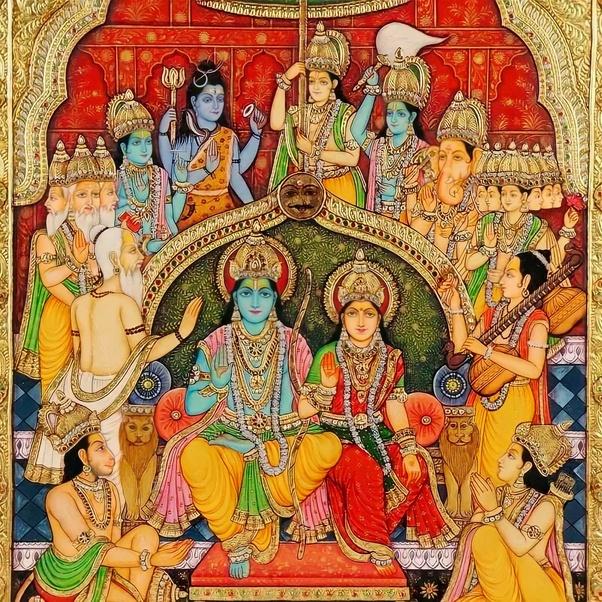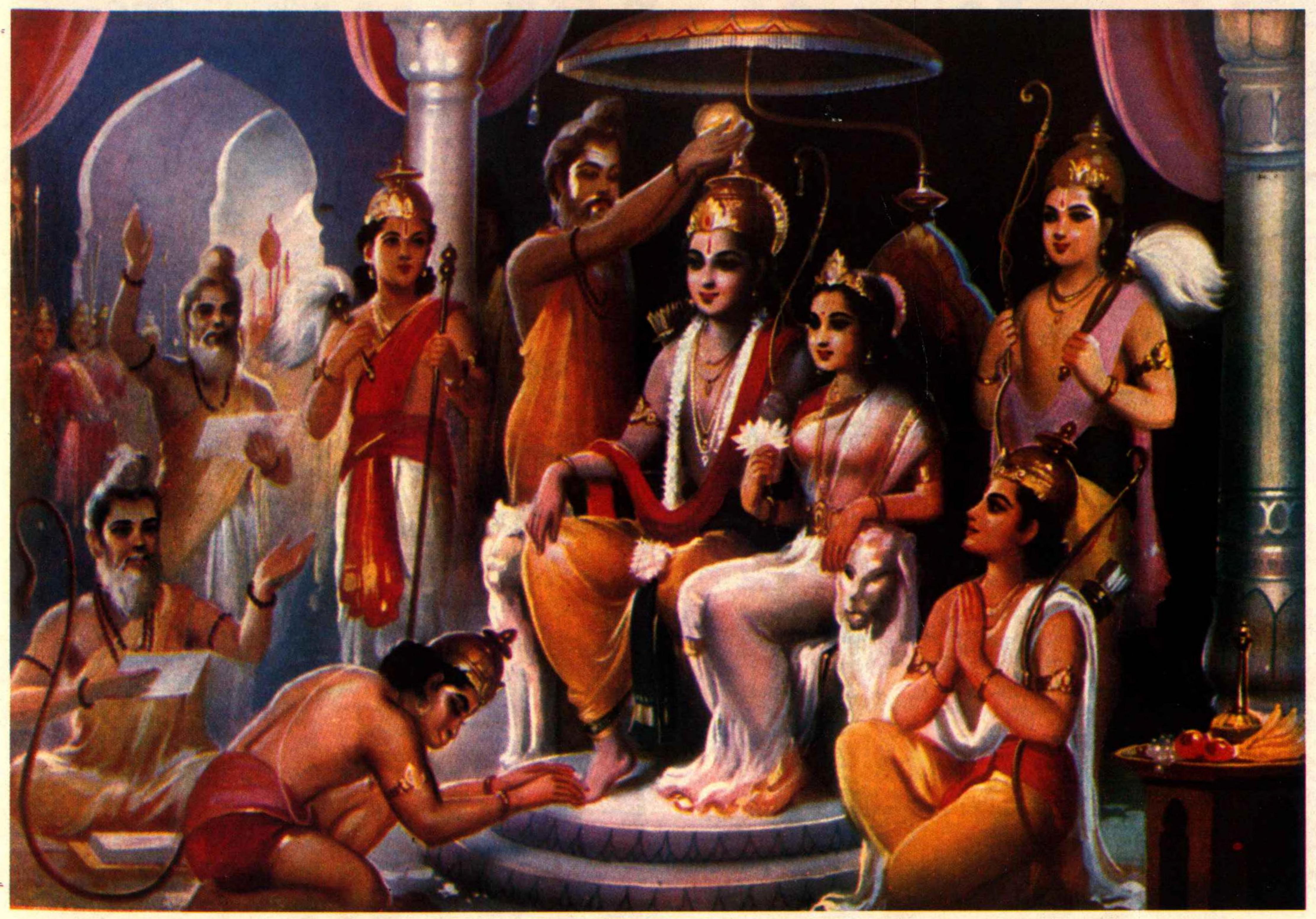- This topic has 0 replies, 1 voice, and was last updated by .
-
AuthorPosts
-
March 11, 2024 at 10:42 pm #1826Up::2
In ancient Indian stories, the idea of “Ram Rajya” represents the society’s ideal state, as Lord Rama imagined. It consists of perfect harmony, dharma, and prosperity, where people lead a happy life. Mahatma Gandhi also said it goes beyond time and includes principles like justice, goodness, and moral authority.
According to Ramayana by Valmiki, good governance is based on honesty, fairness, and kindness. Lord Rama, seen as a perfect king, follows what is right and shows moral values in what he does. This demonstrates the importance of leading with good ethics. His commitment to dharma (doing what is right) and following the rules shows how crucial it is to have open and accountable governance.

The Ideal Vision of Ram Rajya
- Ram Rajya symbolises perfect harmony, justice, and prosperity in society.
- Gandhi’s dream of “equal rights alike of prince and pauper” and sovereignty is rooted in moral authority.
The Ethical Leadership of Lord Rama
- The Ramayana, Valmiki’s ideal, underscores governance built on integrity, justice, and compassion.
- Lord Rama, the ideal king, exemplifies ethical leadership by upholding righteousness and moral values.
- Devotion to dharma and adherence to the rule of law as pillars of accountable governance.
The Power of Self-Control and Compassion
- Lord Rama’s composure in challenging situations is a lesson in mastering emotions and impulses.
- Illustration of forgiveness and compassion through Rama’s interactions with Vibhishana and beings in the forest.
Good Governance for Societal Advancement
- Importance of good governance in promoting social advancement, economic development, and political stability.
- Principles of transparency, accountability, and ethical behaviour as foundational to well-being and prosperity.
Lord Rama’s Principles of Good Governance
- Ruling with righteousness and truth as highlighted in Lord Rama’s address to Bharata.
- Ensuring the welfare and happiness of the people, similar to a loving father caring for his children.
Inclusive Decision-Making and Responsiveness
- Lord Rama’s inclusive approach by seeking advice from advisors and encouraging involving governance.
- Responsiveness to the needs of the people, highlighting accessibility and service orientation.
Peace and Social Harmony
- The essential connection between peace and good governance is highlighted in the Ramayana.
- The establishment of a just rule by Lord Rama contributed to social harmony and inclusivity.
Accountability and Transparency
- Lord Rama’s commitment to fulfilling duties with honesty, promoting transparency and accountability.
- Efficient governance through transparent decision-making processes and capable advisors.
Modern significance of Ram Rajya
- The ethical leadership qualities of Lord Rama remain relevant in modern governance.
- Importance of leadership integrity, accountability, and addressing social inequalities for inclusive societies.

Conclusion:
In the modern era, the teachings of the Ramayana and the ideals of Ram Rajya stand as an inspiration for ethical leadership and good governance. Lord Rama’s principles guide leaders to justice, inclusivity, and sustainable peace. As we reflect on this ancient wisdom, they inspire us to strive for a world where governance is founded on righteousness, compassion, and the well-being of all citizens—a vision as relevant today as it was in the time of Lord Rama.- This topic was modified 1 year ago by .
-
AuthorPosts
- You must be logged in to reply to this topic.